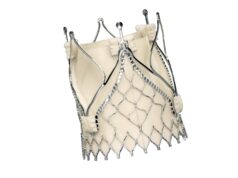
JenaValve has received US FDA approval of expansion of its investigational device exemption (IDE) feasibility studies for the JenaValve pericardial transcatheter aortic valve implantation (TAVI) system with the Everdur system and Coronatix transfemoral delivery catheter. The approval expands eligible patient enrolment from 20 patients at extreme or high surgical risk (10 aortic stenosis; 10 aortic regurgitation) to 80 patients at extreme or high surgical risk (40 aortic stenosis; 40 aortic regurgitation) at up to 10 US sites.
The JenaValve system is proprietary and differentiated from currently available TAVI devices due to the Everdur transcatheter heart valve locator-based technology, designed to enable anatomically-correct, predictable implantation using the new 18F equivalent Coronatix transfemoral delivery catheter. Enrolment has been completed for the aortic stenosis CE mark clinical programme and is ongoing for the aortic regurgitation CE mark clinical programme.
The executive chair of the JenaValve clinical development programme Martin Leon (Columbia University Medical Center, New York, USA) says: “We were the first to perform this procedure in the USA, and have been impressed with the performance of both the delivery system and the valve. We, along with our colleagues at MedStar Washington Hospital Center, conducted the initial US clinical cases in patients with both aortic stenosis and aortic regurgitation, and believe that those results warrant expanded investigation of the system in the USA. We are especially encouraged by the JenaValve TAVI technology in the minimally invasive treatment of eligible patients with severe aortic regurgitation who are at increased surgical risk. That group of patients, until now, have been without a suitable transcatheter option in the USA. We look forward to welcoming the new sites and physicians into the studies, and continuing to study the versatility and durability of the JenaValve implants.”
JenaValve chief executive officer Victoria Carr-Brendel, comments: “We are extremely pleased with the initial clinical results, and are grateful to the US physicians who made these trials possible as they seek a less invasive approach for these patient populations. The device continues to demonstrate exceptional haemodynamics and best-in-class perivalvular leakage results with low pacemaker rates. We are all encouraged by the FDA’s approval to expand this US clinical programme and look forward to furthering our partnership with clinical leaders in the US.”
JenaValve is currently seeking CE mark approval for the treatment of patients with symptomatic, severe aortic stenosis, and anticipates commercializing the system in select countries and sites in 1H 2019.









